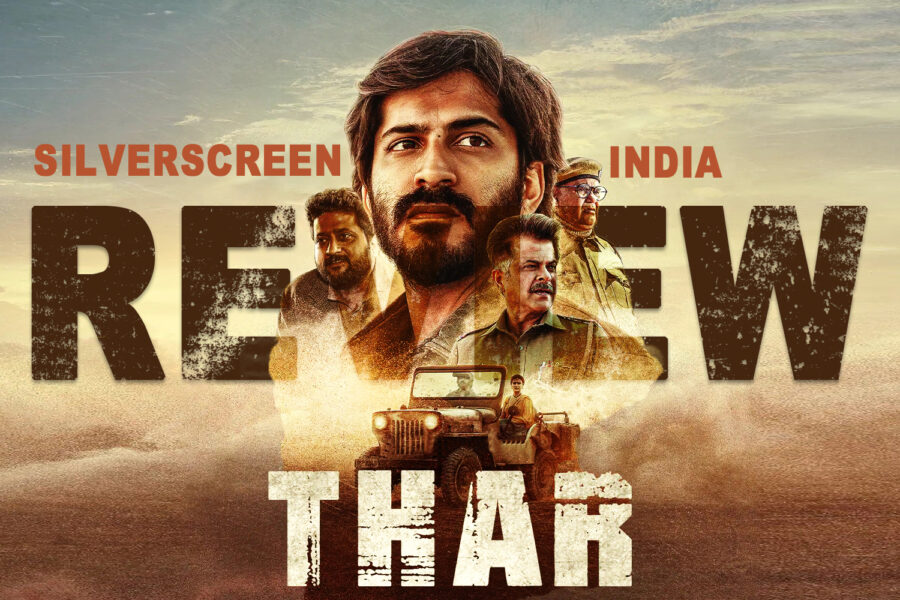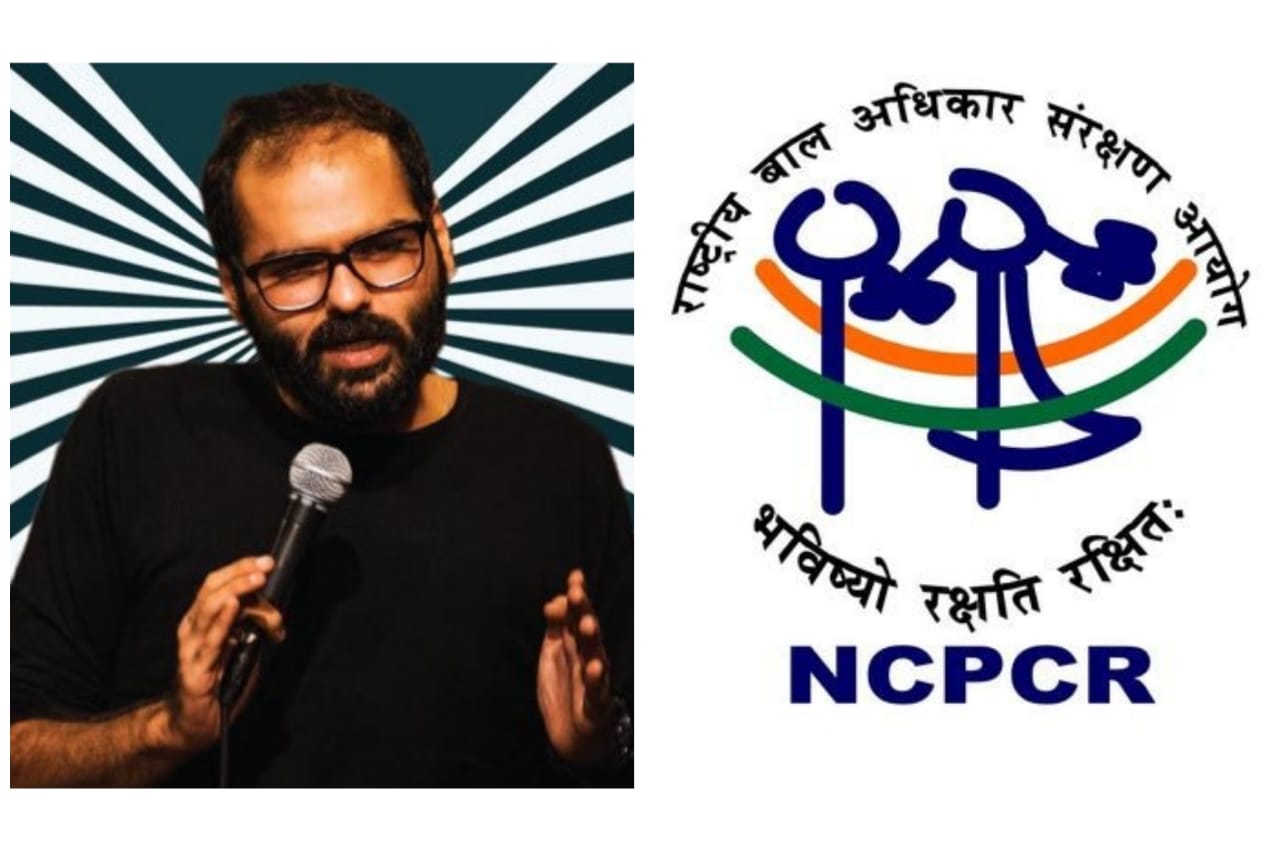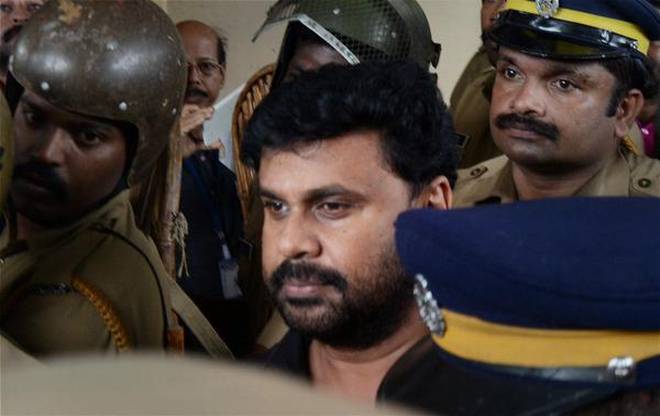In Raj Singh Chaudhury’s Thar, a stranger comes to a vast, dry and morally depraved village in Western India. Siddharth (Harshvarrdhan Kapoor) does not hide his identity or put up a rough demeanour to fit into the local crowd. He uses his soft, metrosexual looks to conceal the devious plan he has been charting for a long time, to hoodwink the village where patriarchal masculinity rules the roost.
Chaudhury’s film, on the one hand, roots for the victory of the underdog over the chauvinist forces, and on the other hand, is a spectacle of violence and macabre – a game where all the major players are men with an appetite for blood and revenge. The filmmaker extends this battle of masculinity to the setting, a desert village not very far from the Pakistan border, where drugs and arms trades flourish, guarded by two policemen who are close to their retirement age. On the village’s brown hilltops, there are abandoned fortresses that must have seen long and gory wars in their prime.
Shreya Dev Dube, the cinematographer, extracts the cinematic potential of this landscape. The white of the salt pans contrasted against the deep brown sand that leaves its colour not just on the trees and the walls of the buildings but on human skin. The cars, trucks and motorbikes, in wide shots, pass along the long black roads snaking through the desert. A sense of foreboding hangs heavy in the air.
Alongside the signs of darkness, the film displays an interesting self-awareness. It opens with a monologue of Surekha Singh (Anil Kapoor), the local police inspector, who starts to narrate the story dramatically, “…A whirlwind swept through the village and things started changing again.” Later, in the shirt pocket of a dead man, he finds a movie poster. Kapoor, pacing towards the camera, his gaze fixed on the landscape behind it, speaks the lines from the publicity poster in a voice worn out from age, “Coming soon in the Thar…”
Chaudhury does not mount his film on realism but as a vintage curry Western in which Anil Kapoor effortlessly fits. Meanwhile, Harshvarrdhan, whose signature screen accessory is a cloak of detachment, delivers a thoroughly one-note performance, reflecting neither the rage nor the underlying psychological issues of Siddharth.
Surekha Singh is the stand-in of the state whose power is useless in this border village, an enemy to many parties. Singh is bored and deeply dissatisfied, yet he leaps to action when the murder series begins. In one of the final scenes, he tracks down the criminal he had been looking for, but as he is frantically climbing up a hill to catch him, a smuggler shoots him in the leg. There isn’t much the cop can do in this chaos but be a witness and a narrator. Kapoor plays the role perceptively – look at him remove his shades and wear the reading glasses every time someone passes him a note or him sewing his old sock on the bed at night, conceding his frustrations to his half-asleep wife.
But Chaudhury’s script struggles to carry Siddharth and Singh parallelly. You hardly feel Singh is hot on the former’s heels because, often, the cop, the principal narrator, is relegated to the narrative’s background and forced to disappear. Singh and Bhure, his buddy cop, played by the formidable Satish Shah, make a great duo, but they get few instances to express their position in this scheme of things. In a delightfully acted scene that tells of the rapport they share, Bhure confides in Singh that the police uniform helps him hide his lower caste status. You see the effects of his caste consciousness in a later scene when he, rather submissively, gives a cigarette to a patriarch resting under a tree. Brief, fleeting moments such as this one help Thar a lot more than the extended torture scenes featuring an impassive Hardhvarrdhan.
It is the complacent script that pulls down Thar. Dube’s cinematography, for instance, comes across as little more than a superficial element in the final sequences because the writing falls short. Siddharth’s journey into the darkness begins and ends in women. But the film does not try to explore in depth this female interference in the masculine terrain. Fatima Sana Shaikh and Mukti Mohan, the wives of two local men, look ethereal in the ethnic clothes, but they have little to do in the proceedings other than being quiet victims of the violence. And the act of revenge, despite being stylishly shot, does not rise above the superficial.
Recommended
In the epilogue, Singh reads out a diary where Siddharth has made notes about the psychological effects of the quest for revenge. But nowhere in the film are these effects examined. Corpses lie scattered on the desert landscape, and vultures wait to feast on them – an impressive image. But the film leaves behind a train of unfinished thoughts, about crime and punishment and the pitfalls of masculinity. For the viewer, there is little takeaway other than Kapoor Senior’s performance and Dube’s haunting images of the desert.
*****
This Thar review is a Silverscreen original article. It was not paid for or commissioned by anyone associated with the movie. Silverscreen.in and its writers do not have any commercial relationship with movies that are reviewed on the site.


